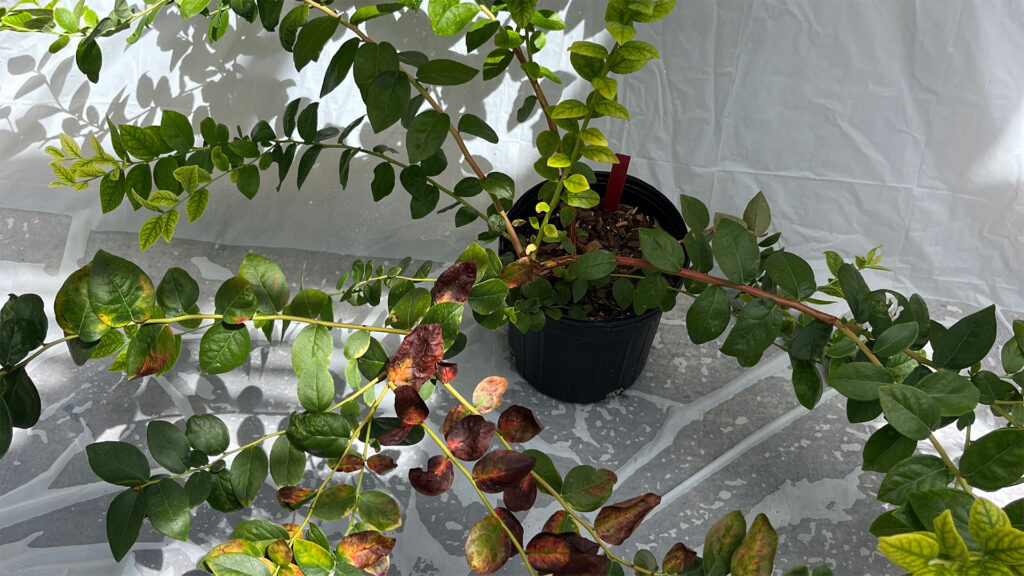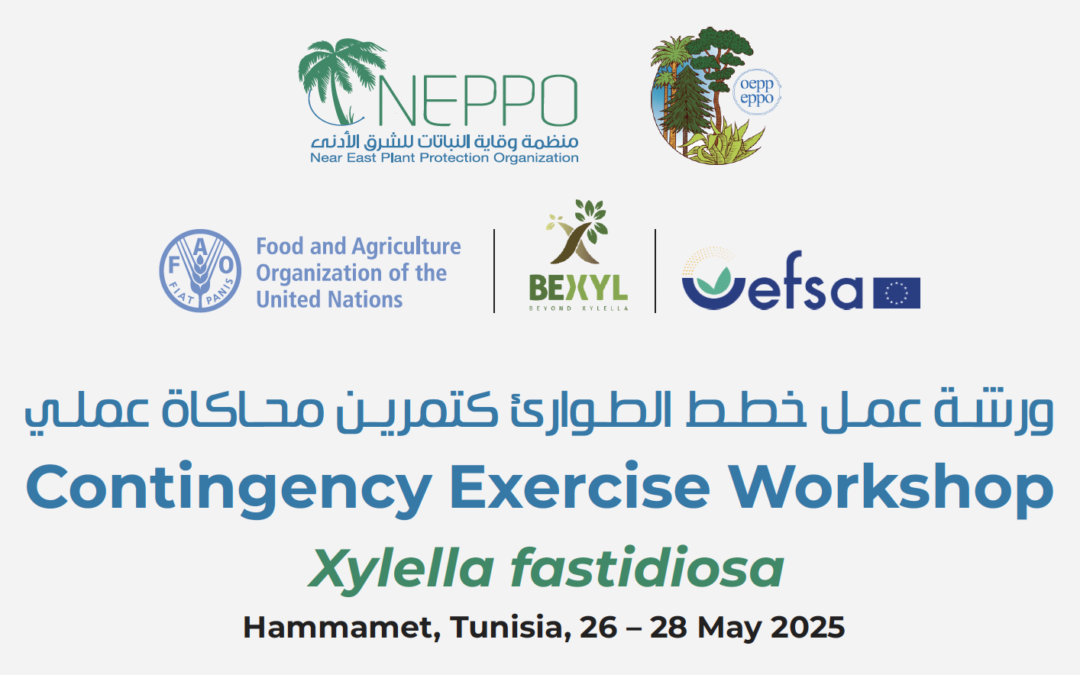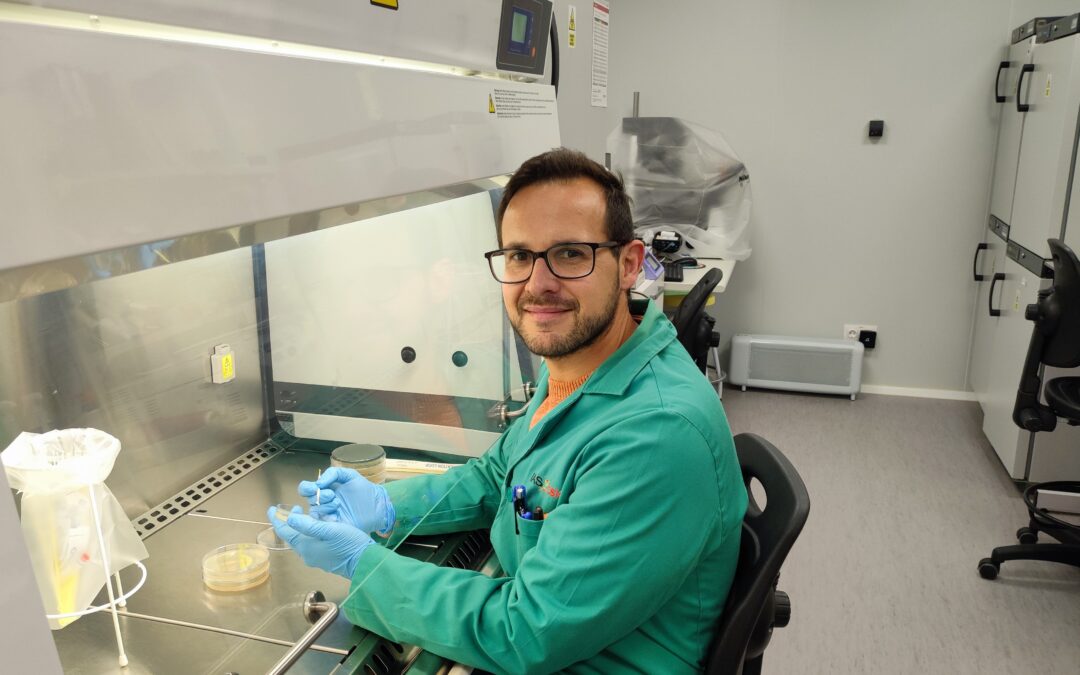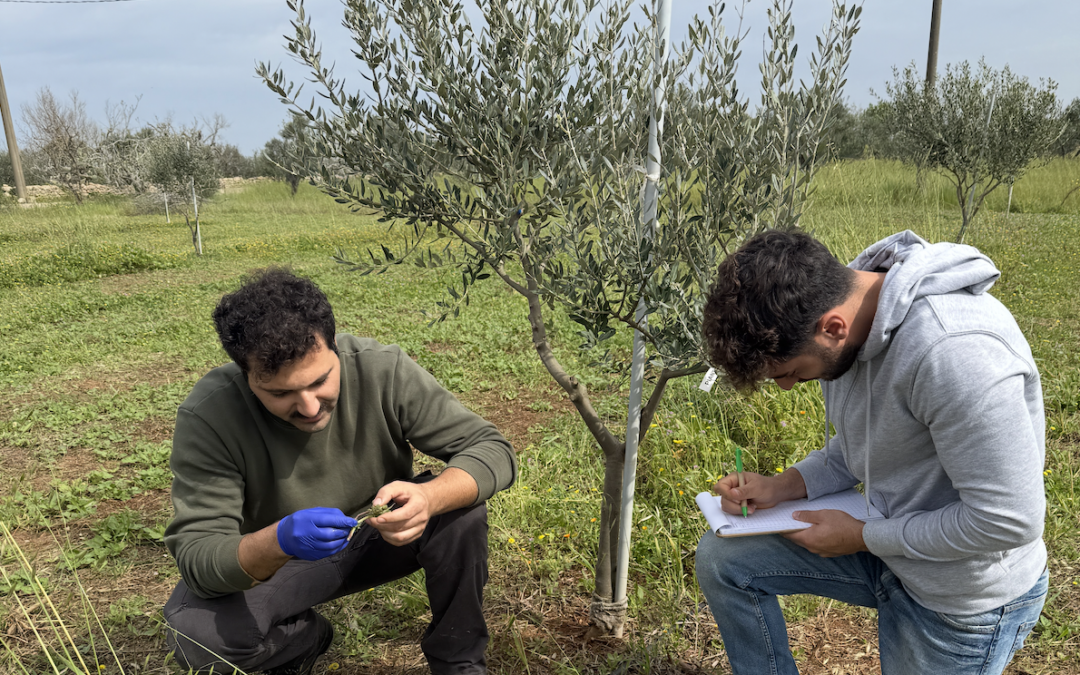Navdeep Kaur completed her master’s degree in plant pathology in November 2024. It is the fulfilment of an aspiration born when, as a child in her native India, she wanted to take care of diseased plants on her parents’ farm. After a bachelor’s degree in agriculture from Punjab Agricultural University, Ludhiana, India, in 2022, Navdeep joined the De La Fuente Lab at Auburn University, where she investigated the interaction between Xylella fastidiosa and host plants.
Why plant health?
I come from a farming family, and during farm visits with my father, I often noticed plants that looked different and weaker than the others. My father would explain that these plants were diseased. When I enrolled in the Bachelor’s degree program in Agriculture, I studied plant pathology and was fascinated by how microscopic organisms could cause such significant damage to crop plants. That deepened my interest in plant health even further.
Which academic pathway did lead you to study X. fastidiosa?
I have always been interested in genetics, microbiology, and plant disease management. During my undergraduate studies, I worked on several molecular biology projects, which further sparked my interest in this field. I have always wanted to study the biology of microorganisms, and seeing the devastation caused by X. fastidiosa in Europe strengthened my desire to study this bacterium. Fortunately, the Molecular Plant Pathology Lab at Auburn University accepted me.
What’s your thesis about? What challenge on X. fastidiosa research do you want to answer with your master’s thesis?
My thesis title was ‘Unraveling Factors Influencing Host Specificity in X. fastidiosa.’ I conducted three distinct projects as part of my thesis. The first project focused on establishing the relationship between pseudogenes and host specificity in X. fastidiosa. For my second objective, I tested different strains of X. fastidiosa isolated from Europe on blueberry plants to assess their virulence. My third objective was to evaluate the effect of selected host-specific gene candidates on the virulence of X. fastidiosa in blueberry plants. Understanding the factors that influence host specificity is a major challenge in combating diseases caused by X. fastidiosa. In recent decades, various studies have suggested that different genotypes of X. fastidiosa have undergone host shifts, which could pose a significant threat to crop cultivation.

What are your main accomplishments and results?
Our studies indicate that pseudogenes could be considered distinctive features of host-specialist strains. According to our findings, host-generalist strains had less pseudogene content, while host-specialist strains had more. Some European strains were more virulent on blueberry plants. One of the candidate genes for host specificity was able to modify virulence in a mutant of a blueberry strain isolated from one of the plants.
What have been the main obstacles in your research?
Some European strains did not grow well on our media plates, and a few were very slow-growing, which delayed further testing on blueberry plants. Secondly, for my third objective, the knockout of specific genes using kanamycin was challenging, as the insert was not integrating into the genome.
How did you manage to hurdle them?
Patience is one of the most important qualities in any experiment, along with the ability to explore different approaches and techniques to overcome challenges. Scientific research often comes with unexpected challenges, so it’s important to stay persistent, adapt, and keep improving methods to get reliable results.
What is your plan after the thesis?
I am pursuing a Ph.D. in Plant Pathology at the University of Florida.








